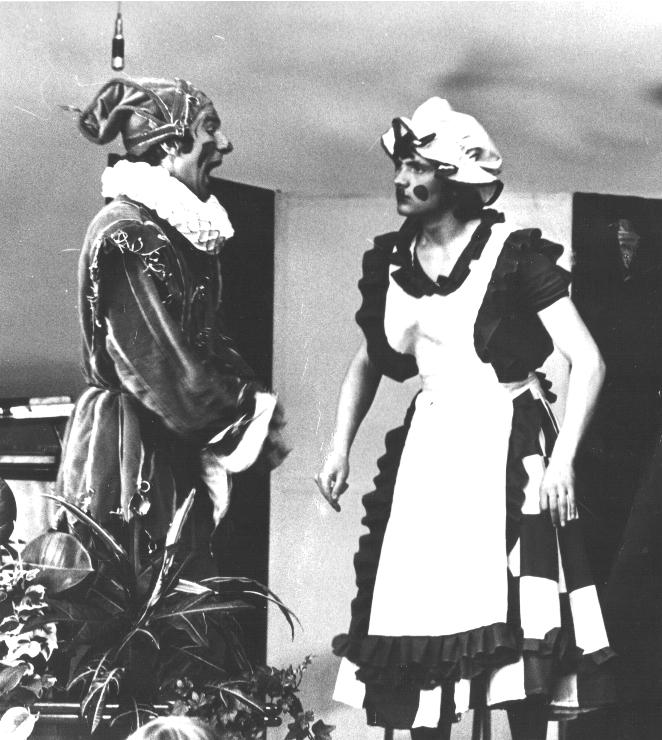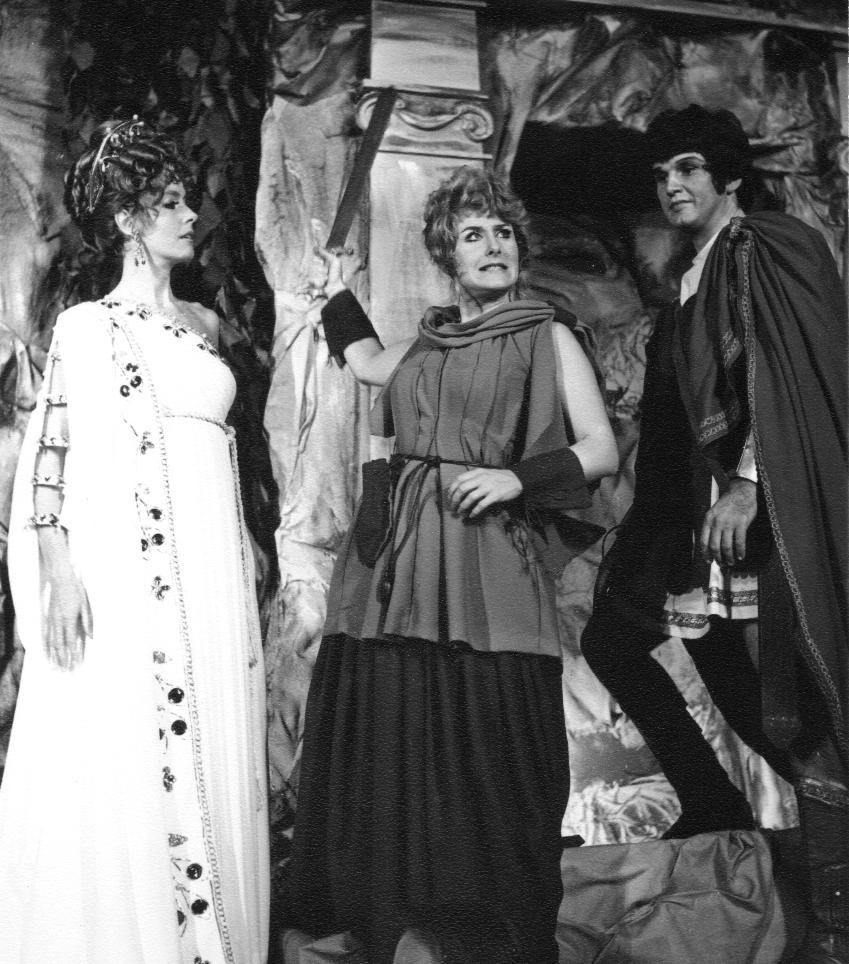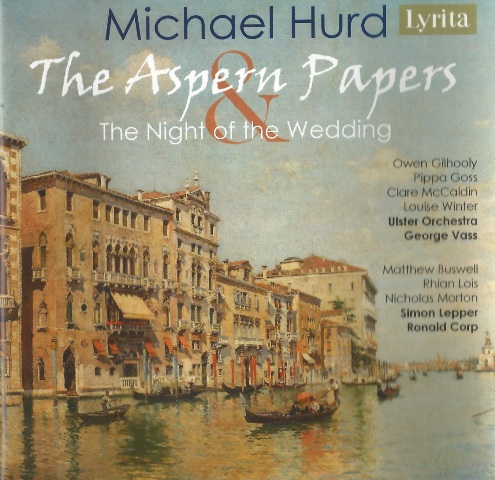"Hurd takes a traditional approach to opera, in which melody predominates in a tonal context and the orchestra accompanies the singers. Word-setting and characterisation are handled simply but effectively."
Geoffrey Bush Grove Dictionary of Opera
Operatic entertainment for children. 30'. Libretto by the composer.
Commissioned by Stiftelsen Institutet for Rikkonserter, Stockholm. Performed on four-week tour in southern Sweden from 3 April 1970 by students from Rose Bruford College of Speech and Drama, Kent.
Punch: David Wynn
Judy/Devil: Timothy Fee
Dog Toby/Doctor/Jack Ketch: Dyfed Thomas
Sergeant Scaramouch/Policeman: Nicholas Darke
Piano & percussion: Frederick Tarttelin and Michael Hurd
Costumes and settings: Gordon Fluck
Directed by the composer
The libretto follows the traditional Punch and Judy play as noted by John Payne Collier in 1828, with reference also to Henry Mayhew's 1850 version.
The exhaustive (and exhausting) tour comprised some forty performances in schools of all shapes and sizes. The setting, necessarily flexible and portable, was a series of alternate black and white hinged screens, with one kitchen chair.
While the tour production used four adult actors playing multiple roles, the composer suggests that if children are playing there should be just one actor per part. Some transposition of music may also be required and use of a chorus for some numbers may be desirable.
The play (notes the composer) was conceived in the spirit of Victorian music halls and should be presented with this in mind.
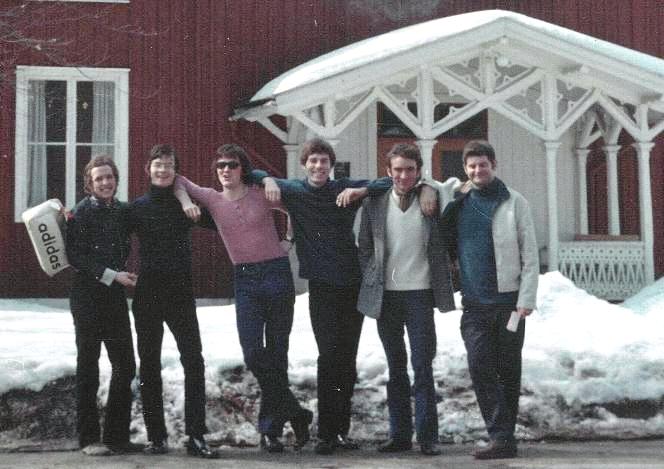
"Mr Punch" tour party
Chamber opera in one act. 45'. Commissioned by the Stroud Festival, Gloucestershire to celebrate the twenty-fifth anniversary of that festival, with support from the Taynton Trust.
Libretto by Michael Hurd and David Hughes. First performance in the presence of HRH The Princess Margaret, Countess of Snowdon, Saturday 23 October 1971, Stroud Subscription Rooms.
Widow: Margaret Lensky (contralto)
Maid: Sandra Dugdale (soprano)
Soldier: Robert Carpenter Turner (baritone)
Violin I: Ysobel Kok
Violin II: Eileen Williams
Viola: Barbara Roberts
Cello: Cicely Trafford
Double bass: Harry Littlepage
Flute: Margaret Lea
Oboe: Barbara Currer-Briggs
Clarinet: Eric Clarke
Bassoon: Eve Clark
Harpsichord: John Kane
Repetiteur: Kenneth Barclay
Conducted by the composer
Designed and directed by Gordon Fluck
The story is taken from an episode in the Satyricon of Gaius Petronius, who was director of court entertainment under the Emperor Nero. As a masterpiece of black humour it has attracted the attention of numerous composers and dramatists, including Charles Dibdin in The Ephesian Matron (1769) and Christopher Fry (A Phoenix Too Frequent). It also formed the basis of a section of Fellini's notorious Satyricon.
A young and beautiful widow, accompanied by her reluctant maid, has taken residence in her husband's tomb. Her decline is arrested by the arrival of a young soldier, who should be guarding the bodies of three recently hanged criminals.
His offer of food and wine revives her interest in the living. When the soldier finds himself in trouble - one of the bodies has gone missing - the widow suggests an outrageously neat solution.
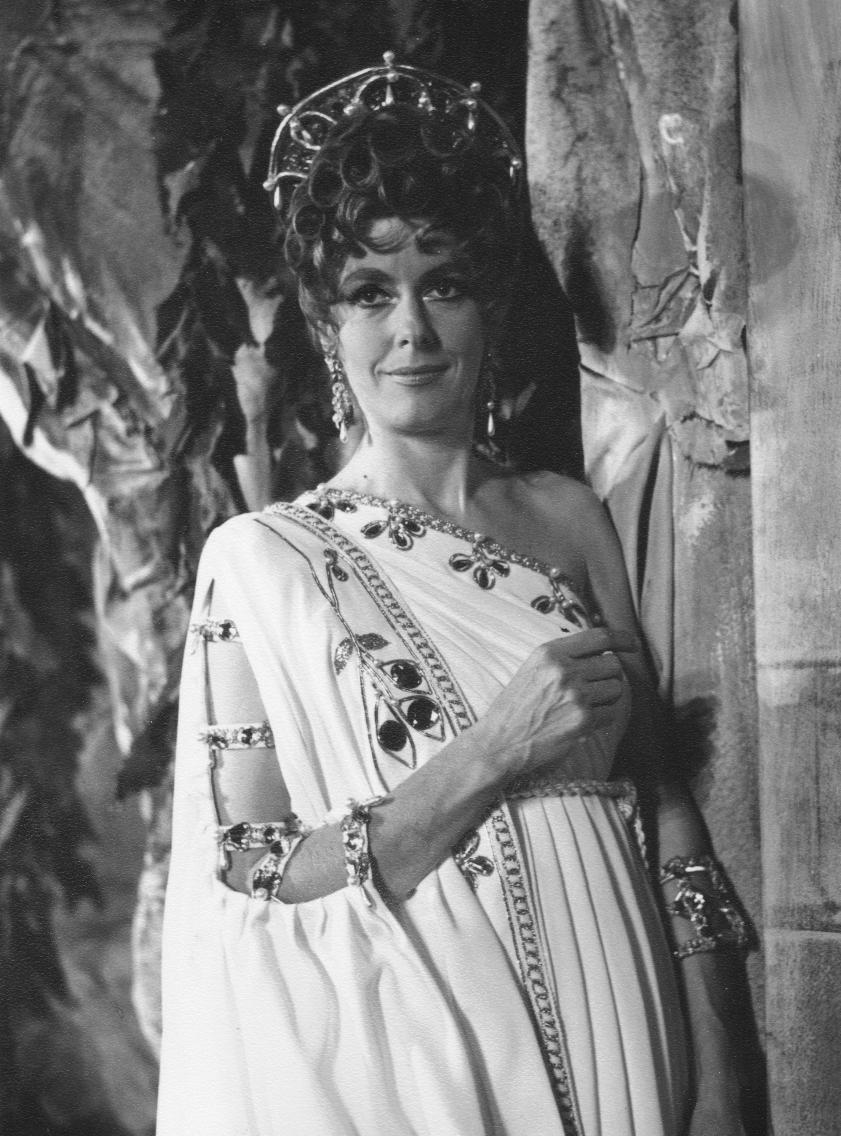
Margaret Lensky
© Gerald Pates, Gloucester
Sketches for the score are dated "Nov 5th - Dec 5th 1969", which indicates work in progress before the commission was made final. Some mild concern was expressed by organisers of the Stroud Festival when they were informed of the title of this piece, designed as it was to be the sparkling centre of anniversary celebrations. There were clearly expectations of an earnestly religious work - rapidly dispelled once the libretto had been delivered. The gala performance was a glittering success, complete with fanfares and an ice cream cake.
Writing in Contemporary Composers (St James Press 1992) Roderick Dunnett notes that the work is scored with witty economy, the subject and treatment bearing favourable comparison with Walton's The Bear.
As well as the literary wit (and in common with many works by the composer), musical lightness of touch abounds. Reference to a sword in the closing pages provokes an elegant Wagner joke while the last bars are a delightedly self-conscious nod to one of Hurd's favourites, Der Rosenkavalier.
The opera has been revived twice in London and three times in Australia, the last being in Melbourne in August 1989. There have also been productions in Holland, Germany and Canada.
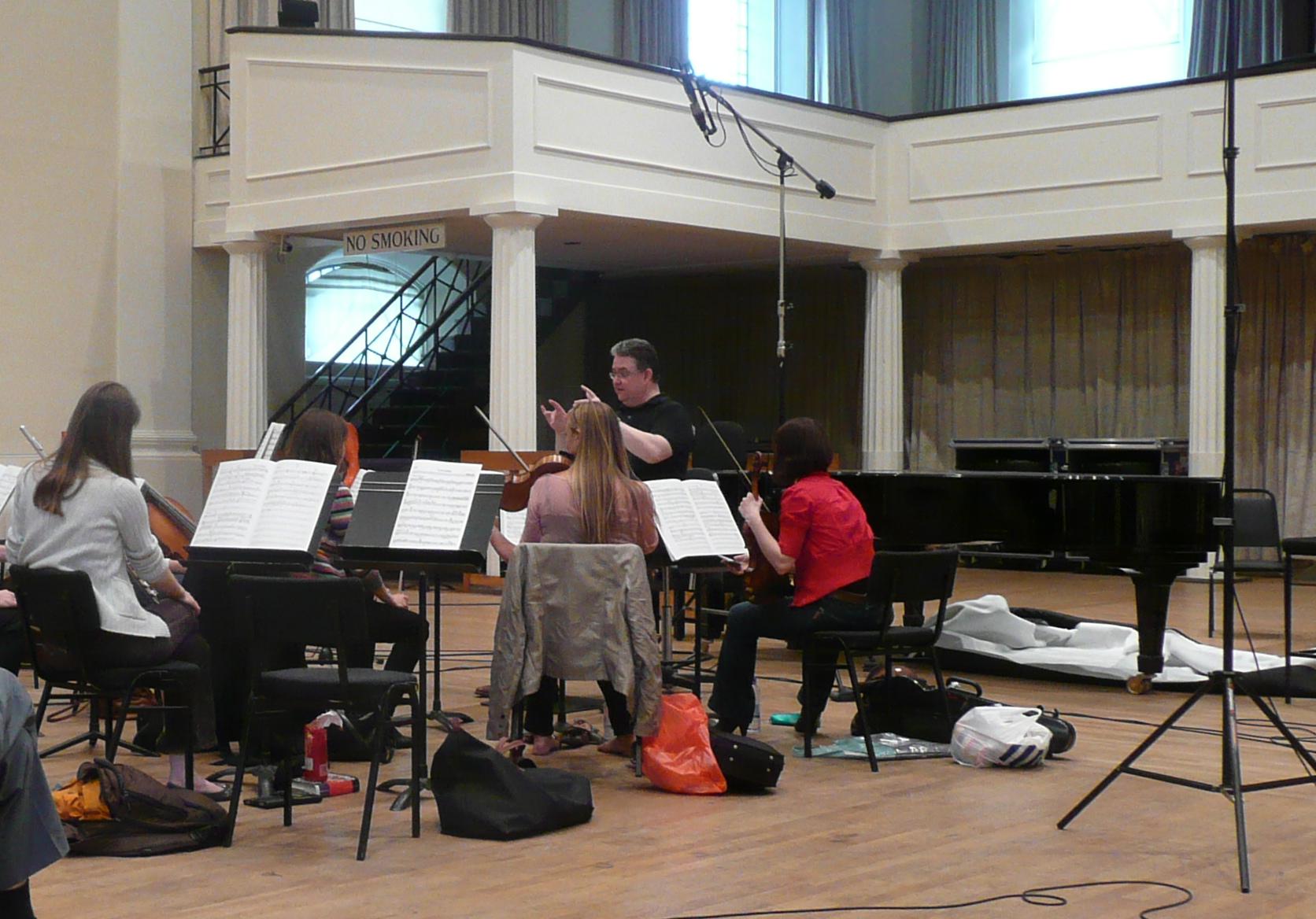
A world premiere recording for Dutton has been completed by George Vass, seen here rehearsing at the Henry Wood Hall.
For details of this disc click here
Opera in three acts, with seven scenes. From the novella by Henry James, libretto by the composer. Ms dated 25 May 1994.
Commissioned for and first performed 14 October 1995 at the Port Fairy Spring Festival, Victoria, Australia. Subsequently at Atheneum Theatre, Melbourne, 11 & 12 November 1995.
2 flutes, 2 oboes, 2 clarinets in Bb, 2 bassoons
2 horns in F, timpani, percussion, harp & strings.
It is the year 1880. Harry Jordan, a handsome young American biographer, is researching the life and work of the poet Jeffrey Aspern who died in tragic circumstances in 1822.
He has discovered that Juliana Bordereau, Aspern's last mistress, is living in poverty in Venice with her niece and companion, Miss Tina. Miss Bordereau is said to own certain unpublished manuscripts relating to Aspern.
With the help of his friend Mrs Prest he hopes to rent rooms in Miss Bordereau's decaying palazzo and so gain access to the coveted Aspern papers.
Cast of premiere
Servant - Kirsten Boerema
Mrs Prest - Margaret Haggart
Harry Jordan - Ian Cousins
Miss Tina - Ann Mackay
Juliana Bordereau - Jeannie Marsh
Gondoliers (silent) - Matthew Donnelly, Cameron MacMillan, Paul Knobloch, Luke Giacomin
Chamber Orchestra of Geelong
Conductor - Brian Stacey
Production - Graham Murphy
Michael Hurd later remarked, "It was a wonderful production, better than anything I could have expected in England."
For composer John McCabe's response, see here.
A world premiere recording for Lyrita has been completed by George Vass.
For details of this disc click here
THE NIGHT OF THE WEDDING
1998

Chamber opera in one act. 20'.
Commissioned by and premiered at Port Fairy Spring Music Festival. Composition dated 30 March 1998. Based on Frank Witney's Nuit de Noces.
Hurd had initially approached the playwright in the mid 1950s for permission to set the work.
Count Gervaise de Polisson (baritone)
Antoine his manservant (tenor)
The Marquise de Belle Poitrine (soprano)
Marquis (bass)
De Polisson's drawing room, Paris 1810, evening.
The Marquise bursts into the peace of the Count's evening, in distress. Tonight is her wedding night, her parents having forced her to marry a fat old glutton.
Unable to contemplate her bridal duties, she saw the Count's lighted windows and throws herself on his mercy. She notes that his manservant is a handsome chap. The Count feels a very strong attraction to her - and clearly has a duty to lend a helping hand, if not more.
The Marquis however has followed his bride and erupts into the drawing room. A challenge ensues and a duel is agreed - but inside the house. In a scene of confusion the young lady is apparently shot dead. Aghast and at a loss as to how to spend his wedding night now, the Marquis is advised by the Count that ladies of a certain reputation live nearby. The two men go off arm in arm, leaving the "body" to Antoine. "He will know what to do with it.".
Furious, the Marquise rises, and having cursed both men, lies back down again as she realises with a smile that Antoine will very likely know "what to do with her" on discovery.
A world premiere recording for Lyrita has been completed by Ronald Corp.
For details of this disc click here
